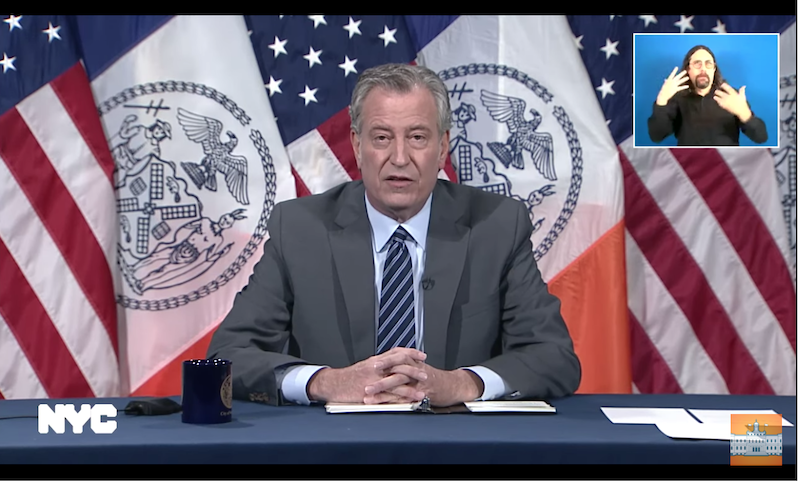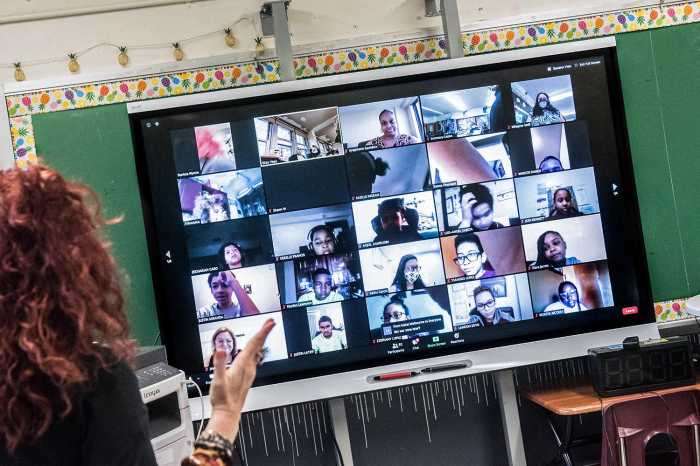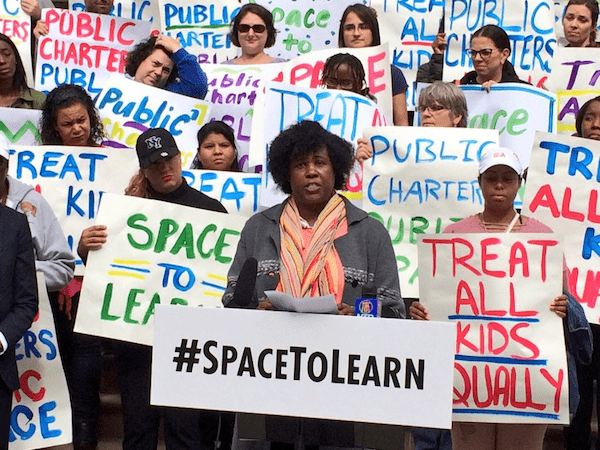Mayor Bill de Blasio and Schools Chancellor Richard A. Carranza today announced a scaled-down K-12 citywide grading policy for the remainder of the public school year to adjust to families and students grappling with the COVID-19 crisis, which forced the city to close schools and switch to remote online home learning.
De Blasio, in announcing the ’emergency’ grading policy, noted that most education experts would need a year or more to develop an online remote education model for the city’s 1.1 million public school students, and the city had a week to create one.

“Our students, educators, and families are going through a lot right now. I know our students are capable of excellence, and we will continue to hold them to that high standard while adjusting our grading to reflect the unprecedented challenges created by this crisis. We will give every student the support they need to bounce back and continue on their path to success,” said de Blasio.
“We recognize that parents and students alike are experiencing anxiety and trauma in the midst of the pandemic, and we have continually evolved our policies to meet this moment. Our adjustments to grading maintain clear expectations that acknowledge each individual student’s experience, while creating a consistent, equitable system across all schools,” said Carranza. “Our priority is to minimize stress on families and students, while still providing next year’s teachers with the information they need about an individual student’s progress toward achieving standards.”
This new grading policy still requires students to meet the DOE’s high standards, but also provides flexibility, where needed, given the extraordinary circumstances families are in because of the COVID-19 pandemic. This policy reflects the input of teachers, students, and parents from across the City.
The new grading policy for the remainder of the 2019-20 school year is effective immediately:
· Grades 3-K and Pre-K: There is no impact as these students do not receive report cards or grades.
· Grades K-5: Schools will award grades using a binary “Meets Standards” and “Needs Improvement” scale to ensure students are demonstrating mastery of the learning outcomes for their required courses.
· Grades 6-8: Schools will award grades using three values: Meets Standards, Needs Improvement, and Course in Progress.
· Grades 9-12: Schools will continue with the same grading scales they had before remote learning with the addition of a “Course in Progress” rating for students who cannot submit work or demonstrate mastery. Failing grades will be considered “Course in Progress.” Students will be given the time and support they need to complete coursework and earn credit through January 2021. In alignment with CUNY’s COVID-19 flexible grading policy for their 2020 Spring Semester, high school students who have successfully completed and earned credit for a course will have the option to convert a passing grade to a “Pass” rating that preserves their existing GPA, but will still count as credit toward graduation.
All students receiving “Course In Progress” who have not yet completed required course work will be enrolled in summer programming. High School seniors and current 8th graders who receive “Course in Progress” will be prioritized for support to keep them on track for August graduation and promotion. When students complete the course, their grade will be changed from “Course in Progress” to the appropriate passing grade.
Schools are expected to take into account the full year of work and current circumstances when making assessments for grading. Assignments and evaluations are intended to measure a student’s mastery of coursework and understanding of the core concepts and standards needed to succeed in the following grade.
The city is also asking teachers to make adjustments that acknowledge the impact of remote learning on the ways in which students complete their assigned work, such as expectations for due dates.










